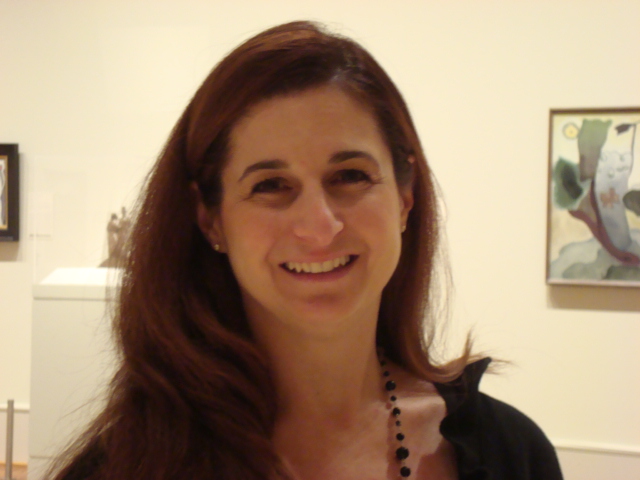 Nicole Batsch is an Atlantic Fellow with the Global Brain Health Institute and completed her PhD at King’s College London, co-supervised in the Institute of Gerontology and the Social Care Workforce Research Unit. She can be reached at nicole.batsch@gbhi.org. (704 words)
Nicole Batsch is an Atlantic Fellow with the Global Brain Health Institute and completed her PhD at King’s College London, co-supervised in the Institute of Gerontology and the Social Care Workforce Research Unit. She can be reached at nicole.batsch@gbhi.org. (704 words)
While I was writing my PhD I craved the opportunity to discuss and debate the state of the dementia field, where it’s been and where it’s going and the often competing priorities of stakeholders including people living with dementia, families, health care professionals, researchers, policy makers and the charity sector. What I learned was that a PhD was often a long, lonely slog with only the warm glow from my computer screen to keep me company.
But for the past nine months, I’ve finally had that opportunity to discuss and debate and I’ve gotten to experience it in a multi-disciplinary setting to better understand the perspectives of other disciplines different to my own. Very often in dementia, we stay in our discipline—nurses associate with other nurses; doctors of neurology, psychiatry and neuroscience associate with other doctors from their specialty; gerontologists with other gerontologists. We stay in our silos and examine dementia from very specific perspectives. We host conferences solely dedicated to only people within that silo. So, to have the opportunity to meet, collaborate, influence, and learn from people originating from other disciplines has been a rare and special experience.
For the past nine months, I have been a Fellow with the Global Brain Health Institute (GBHI). In fact, I have been an Atlantic Fellow for Equity in Brain Health, which I will explain further. GBHI is a collaboration between Trinity College Dublin and University of California San Francisco. Through funding from Atlantic Philanthropies, GBHI has brought together an opportunity for the annual enrolment of professionals from multi-disciplinary perspectives who are the leaders of today, tomorrow and the next day working in dementia to prepare them to lessen the impact of dementia—on people living with dementia, on brain health to delay dementia, and on societies to be better prepared. The idea is for Fellows to bring this knowledge back to their home countries once their fellowship is complete and to provide a life-long network of emerging leaders in brain health and dementia to support each other and collaborate.
Equity in Leadership Development
How we each define ‘equity’ is slightly different based on our areas of expertise. Overall for GBHI, equity is about bringing together the disciplines, each having equal opportunities to be heard. For me personally, equity is about also giving people with dementia that opportunity to be heard so that’s part of my personal development plan as a Fellow and follows on from my previous work in practice and academia. Hear current fellows speak about their experience.
I’ve had a wonderful experience as one of the first cohort of this programme. I’ve met interesting emerging leaders from many countries including Brazil, Colombia, Spain, Egypt, Cuba, Ireland and the US and in many disciplines including medicine, nursing, epidemiology, psychosocial research, arts and humanities, journalism and law. During the first year, we’ve had the opportunity to provide feedback and evaluation to improve upon elements of the programme for future cohorts. The programme consists of weekly lectures in brain science, ethics, economics and policy as well as leadership development workshops. We also have personalised development plans and several avenues for mentorship. Visits are arranged to dementia practice sites including, for example, memory clinics, dementia cafes, and smart homes in Ireland or San Francisco (depending on where the Fellow chooses to be based) during the six-month to one-year in-residence programme.
Applying for the role
The deadline for the next round of applications for the 2018 academic year is the end of September 2017. Visit www.gbhi.org/apply. I’d like to spread the word especially to professionals with expertise in the psychosocial aspects of dementia, intervention therapies such as occupational therapy, care settings and the arts to balance Fellows that come from more clinical-based settings. The inter-disciplinary opportunities to collaborate are essential to the future of dementia and brain health.
The Fellows and faculty are lovely and it is a great opportunity for career development. An MD or PhD is not required, only a commitment to brain health or dementia and a desire and capability to make a difference. The programme aims at early and mid-level career professionals regardless of discipline. Forty new Fellows will be enrolled each year.
Nicole Batsch is an Atlantic Fellow with the Global Brain Health Institute and completed her PhD at King’s College London co-supervised in the Institute of Gerontology and the Social Care Workforce Research Unit. She can be reached at nicole.batsch@gbhi.org.